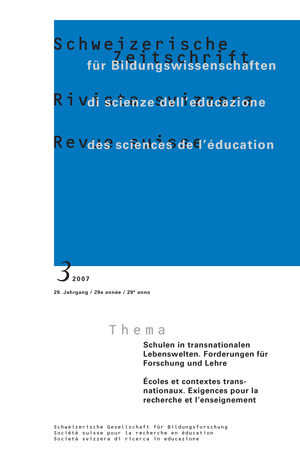Schools in transnational communities. The “Förmig-Program” to the promotion of children and youngsters with a migration background
DOI:
https://doi.org/10.24452/sjer.29.3.4580Keywords:
Children with a migration background, diagnosis-based promotion of linguistic skills, first and second language; assessment of linguistic skills, multi-linguistic skills, proficiency, model program, language of the school, educational language, evaluationAbstract
This contribution presents the “Förmig-Program”, a program to the promotion of linguistic skills, implemented 2 years ago in 10 German Bundesländer. It incorporates 130 so-called basic-units (e.g., cooperations of schools, other educational institutions, and social organizations), and 5000 children with a migration background. Since school achievement depends much on language skills, the model focuses on the training of these skills. To grow up with more than one language is considered a resource to the development of linguistic competence. The actual skills of the children are diagnosed in both first and second language in order to make decisions for enhancing their proficiency. The following principles are characteristics of the Förmig program: (1) Cooperative promotion of linguistic skills (among schools, parents, and other educational influences); (2) linguistic training in significant biographical phases; and (3) diagnosis-based individual promotion. Results of the evaluation of the program and approaches to its implementation are discussed.
Downloads
Downloads
Published
Issue
Section
License
Copyright (c) 2007 Ursula Neumann

This work is licensed under a Creative Commons Attribution 4.0 International License.



